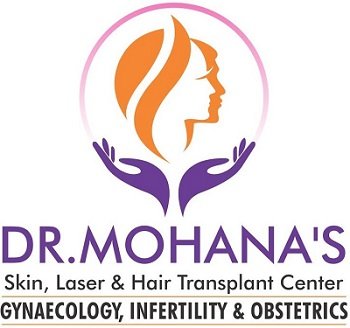Polycystic Ovarian Disease (PCOD) is a common hormonal disorder affecting millions of women worldwide. It occurs when the ovaries produce excessive androgens (male hormones), leading to irregular menstrual cycles, infertility, weight gain, and other metabolic issues. Dr. Archana Mohana, a leading gynecologist in Indore, specializes in diagnosing and treating PCOD to help women regain hormonal balance and improve overall health. If you are experiencing PCOD symptoms in Mahalaxmi Nagar, Nipania, Vijay Nagar, Tulsi Nagar, or any area in Indore, expert care is just a consultation away.
Common Symptoms of PCOD
Women with PCOD often experience a range of symptoms, including:
- Irregular Periods: Delayed, absent, or prolonged menstrual cycles.
- Excess Hair Growth (Hirsutism): Unwanted hair on the face, chest, or back due to high androgen levels.
- Acne and Oily Skin: Hormonal imbalances can trigger breakouts.
- Weight Gain and Difficulty Losing Weight: PCOD often leads to obesity, especially around the abdomen.
- Hair Thinning or Baldness: Scalp hair thinning similar to male-pattern baldness.
- Difficulty in Conceiving: PCOD affects ovulation, making conception challenging.
Causes and Risk Factors of PCOD
While the exact cause of PCOD is not fully understood, several factors contribute to its development:
- Genetics: A family history of PCOD increases the risk.
- Insulin Resistance: High insulin levels can lead to increased androgen production.
- Hormonal Imbalances: Excess androgens disrupt the normal menstrual cycle.
- Lifestyle Factors: Poor diet, lack of exercise, and obesity can worsen symptoms.
How PCOD Affects Women’s Health
PCOD is more than just a reproductive disorder; it impacts overall health in various ways:
- Infertility: PCOD disrupts ovulation, reducing the chances of pregnancy.
- Metabolic Issues: Increased risk of diabetes, high cholesterol, and heart disease.
- Mental Health Concerns: Anxiety, depression, and mood swings are common.
- Sleep Disorders: PCOD is linked to sleep apnea and other sleep disturbances.
Best PCOD Treatment in Indore by Dr. Archana Mohana
Though there is no permanent cure, PCOD can be managed effectively with the right approach:
- Lifestyle Modifications
- Healthy Diet: A balanced diet rich in fiber, lean proteins, and healthy fats can help regulate insulin levels.
- Regular Exercise: Physical activity helps improve insulin sensitivity and maintain a healthy weight.
- Stress Management: Yoga, meditation, and proper sleep improve overall well-being.
- Medications & Treatments
- Birth Control Pills: Help regulate periods and reduce androgen levels.
- Insulin-Sensitizing Medications: Metformin is often prescribed to improve insulin resistance.
- Fertility Treatments: Ovulation-inducing medications help women trying to conceive.
- Cosmetic Treatments: Laser hair removal or dermatological treatments for acne and hair growth.
FAQs About PCOD Treatment in Indore
Q1: Is PCOD the same as PCOS?
A: No, while both conditions involve ovarian cysts and hormonal imbalances, PCOD is typically less severe than PCOS.
Q2: Can PCOD be cured completely?
A: There is no cure, but symptoms can be managed effectively with a healthy lifestyle and medications.
Q3: Does PCOD affect fertility permanently?
A: No, with the right treatment and lifestyle changes, many women with PCOD can conceive naturally.
Q4: What foods should I avoid if I have PCOD?
A: Avoid processed foods, sugary snacks, refined carbs, and excessive dairy to manage insulin resistance.







